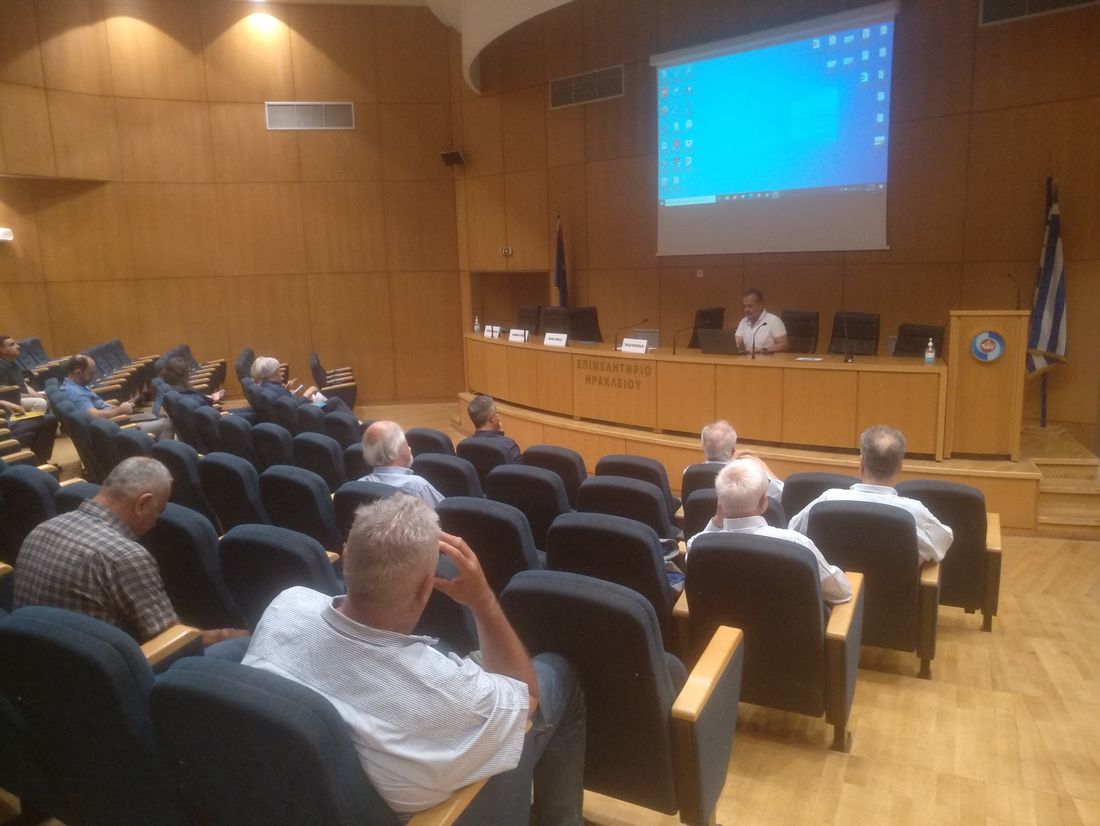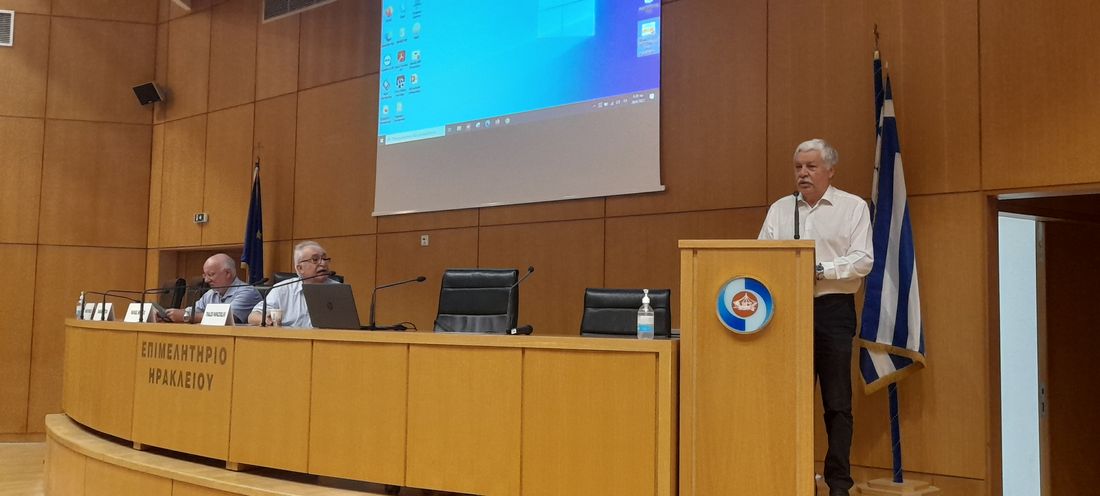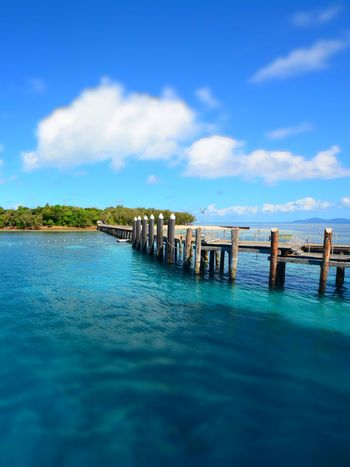Brief Account for DEMSEE 2022
by Prof. Thales M. PAPAZOGLOU

Iraklio, Crete
20-21 June 2022
The 14th DEMSEE was a success this year, 20-21 of June, in Iraklio, Crete. More than 40 delegates were present during the program – many of whom Cigreans. Focus was on the System of Crete which now is interconnected with the mainland system via the World’s longest AC undersea cable at 150 kV. The chosen Focus Theme for the conference was “Electricity Markets evolution and Climate Change”.
Energy Markets have recently entered the area of the so-named Transition Period during which the changes necessary to achieve zero-carbon emissions – the target for 2050 – must be implemented. In recent times gas prices have exhibited great volatility resulting in unstable Electricity Markets and high kwh prices for the consumers. Furthermore, the so-named “Putin war” followed by sanctions to Russia has made the situation much worse regarding gas and oil prices.
In Humanity’s urgent task to avert Climate Change, Electricity could be a crucial tool, for many reasons. For maximizing the utilization of Renewable Energy Sources (RES). For the smart electric vehicles and transports. For achieving maximum efficiencies in the operation of cities and industry. For smoothing out time-variations of the electric demand with the interconnected Large-Area Power-grids (LAPs). For providing high-quality, efficient and robust power supply through the operation of smart-grids and microgrids. Last, for the production of green hydrogen.
In present days Electricity Markets in Europe are not functioning properly. In USA there is long tradition in operating Money Exchanges, so there things are different. Malfunctioning of the Electricity Market results, at the end of the day, in high kwh prices for the consumer. Long-term bilateral agreements between providers and users of bulk electric power should be encouraged. In some European Countries, e.g. France and Germany this is done, but, in others like Greece this is not yet an option.

To manage the new situation a careful and thorough examination of all possible scenarios for the evolution of Electricity Markets should be undertaken. A particular focus should be in the required changes for the next 15 years. An analysis is needed of all relevant technical issues, like:
- Interconnections (HVDC and AC)
- Offshore DC grids
- Offshore wind generation
- Solar installations, in combination with other uses of land
- Adaptive electric vehicle chargers, and Adaptive Charging Networks (ACN) in conjunction with smart-phone apps
- Production, storage, and supply of green hydrogen
- Storage facilities for LNG to use for smoothing out the impact of the volatility of LNG markets during the transition period
- Electricity storage and advanced battery designs
- Refurbishment of Distribution Grids and their Control Centres
- Utilization of Big Data Analysis platforms in CCs
- The impact of extreme weather events
as well as regulatory aspects (codes, guidelines, regulations, directives, legislation). Public policies for the Green Transition Period should aim to assure the affordability of electricity to the consumer while prohibiting profiteering, wastes of energy and capital.
Nowadays, “prosumers” have replaced many a producer and a consumer, and hence the Public becomes a key factor with a vital role to play for the changes needed in the operations of the grids and the electricity markets. So, clearly, there is a decisive Social Dimension in all this. And, to put it shortly: Ambitions require permissions! Managing the public is a difficult issue. However, averting Climate Change is an urgent matter for humanity. We must decisively act without any delay. The point of no return is almost here!





